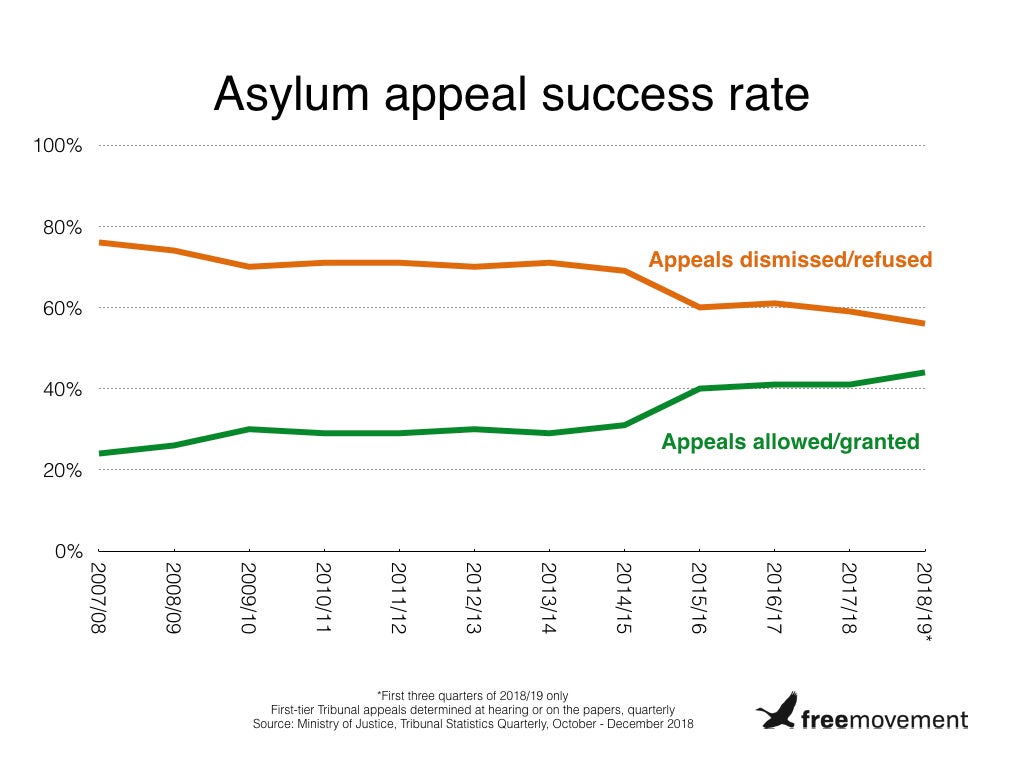Home Office refuses Christian convert asylum by quoting Bible passages that 'prove Christianity is not peaceful'
Campaigners say case demonstrates 'distortion of logic' and 'reckless' approach to asylum seekers' lives
Your support helps us to tell the story
From reproductive rights to climate change to Big Tech, The Independent is on the ground when the story is developing. Whether it's investigating the financials of Elon Musk's pro-Trump PAC or producing our latest documentary, 'The A Word', which shines a light on the American women fighting for reproductive rights, we know how important it is to parse out the facts from the messaging.
At such a critical moment in US history, we need reporters on the ground. Your donation allows us to keep sending journalists to speak to both sides of the story.
The Independent is trusted by Americans across the entire political spectrum. And unlike many other quality news outlets, we choose not to lock Americans out of our reporting and analysis with paywalls. We believe quality journalism should be available to everyone, paid for by those who can afford it.
Your support makes all the difference.The Home Office has refused asylum to a Christian convert by quoting Bible passages which it says prove Christianity is not a peaceful religion.
The Iranian national, who claimed asylum in 2016, was told passages in the Bible were “inconsistent” with his claim to have converted to Christianity after discovering it was a “peaceful” faith.
The refusal letter from the department states the book of Revelations – the final book of the Bible – is “filled with imagery of revenge, destruction, death and violence”, and cites six excerpts from it.
It then states: “These examples are inconsistent with your claim that you converted to Christianity after discovering it is a ‘peaceful’ religion, as opposed to Islam which contains violence, rage and revenge.”
When contacted by The Independent, the Home Office said the letter was “not in accordance” with its policy approach to claims based on religious persecution, and said it was working to improve the training provided to decision-makers on religious conversion.
Lawyers and campaigners said the case demonstrated a “distortion of logic” and a “reckless” approach to asylum seekers’ lives, stemming from a tendency by the department to “come up with any reason they can to refuse” cases.
Nathan Stevens, the asylum seeker’s caseworker, tweeted: “I’ve seen a lot over the years, but even I was genuinely shocked to read this unbelievably offensive diatribe being used to justify a refusal of asylum.
“Whatever your views on faith, how can a government official arbitrarily pick bits out of a holy book and then use them to trash someone’s heartfelt reason for coming to a personal decision to follow another faith?”

The latest immigration statistics reveal an increase in the number of incorrect asylum refusals, with successful appeals against Home Office decisions up 5 per cent since 2015-16, now standing at 45 per cent of all of those that go to tribunal.
Legal expert Conor James McKinney, deputy editor of website Free Movement, said the case was a symptom of the Home Office’s tendency to “come up with any reason they can to refuse asylum”.
“You can see from the text of the letter that the writer is trying to pick holes in the asylum seeker’s account of their conversion to Christianity and using the Bible verses as a tool to do that,” he said.
“The Home Office is notorious for coming up with any reason they can to refuse asylum and this looks like a particularly creative example, but not necessarily a systemic outbreak of anti-Christian sentiment in the department.”
Sarah Teather, director of the Jesuit Refugee Service (JRS) in the UK, said the case was a “particularly outrageous example of the reckless and facetious approach of the Home Office to determining life and death asylum cases”.
She said JRS regularly encountered cases where asylum had been refused on “spurious grounds”, adding: “Some of these cases require more legal knowledge to recognise than this bizarre misquoting of the Bible, but as this instance gains public attention, we need to remember it reflects a systematic problem and a deeper mindset of disbelief, and is not just an anomaly that can be explained away.”
Stephen Evans, chief executive of the National Secular Society, meanwhile branded it “wholly inappropriate” for the Home Office to use “theological justifications for refusing asylum applications”.
He added: “Decisions on the merits of an asylum appeal should be based on an assessment of the facts at hand – and not on the state’s interpretation of any given religion. It’s not the role of the Home Office to play theologian.”
A Home Office spokesperson said: “This letter is not in accordance with our policy approach to claims based on religious persecution, including conversions to a particular faith.
“We continue to work closely with key partners, including the All-Party Parliamentary Group on International Freedom of religion and a range of faith groups, to improve our policy guidance and training provided to asylum decision-makers so that we approach claims involving religious conversion in the appropriate way.”

Join our commenting forum
Join thought-provoking conversations, follow other Independent readers and see their replies
Comments